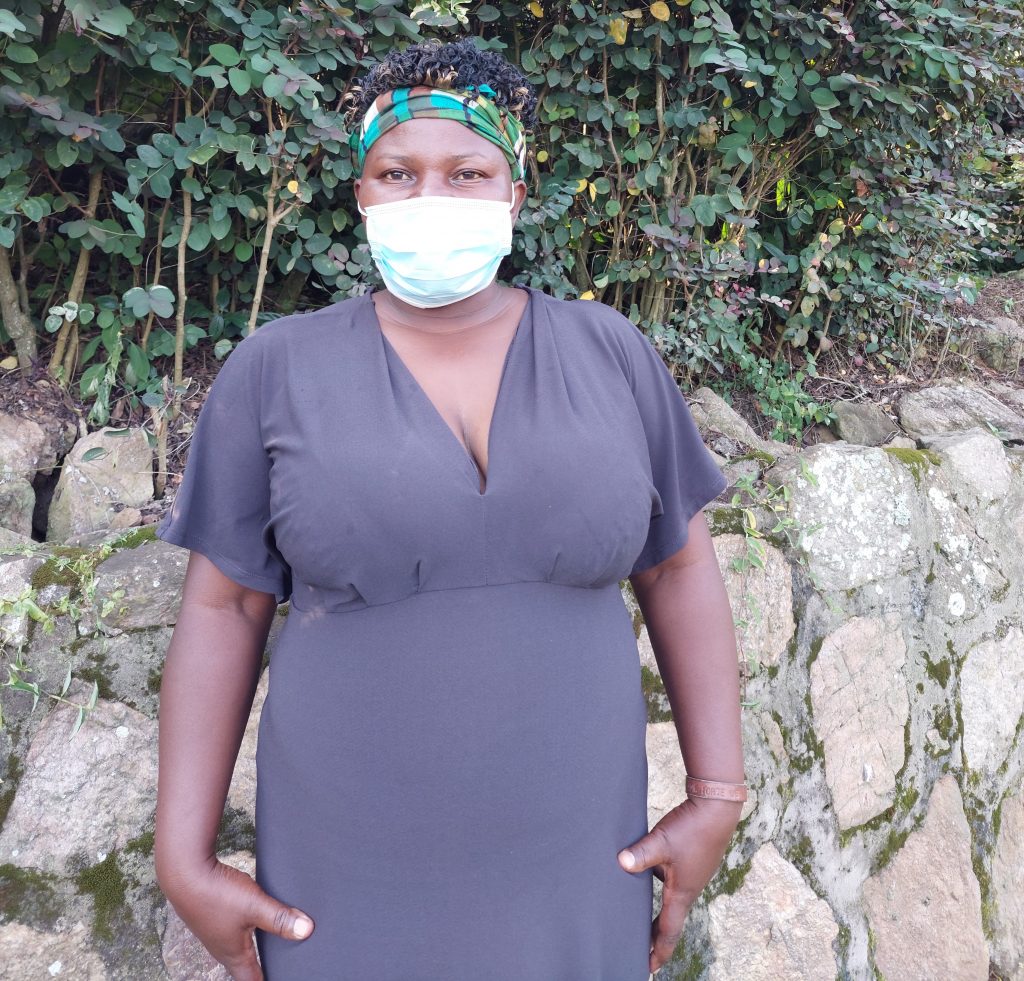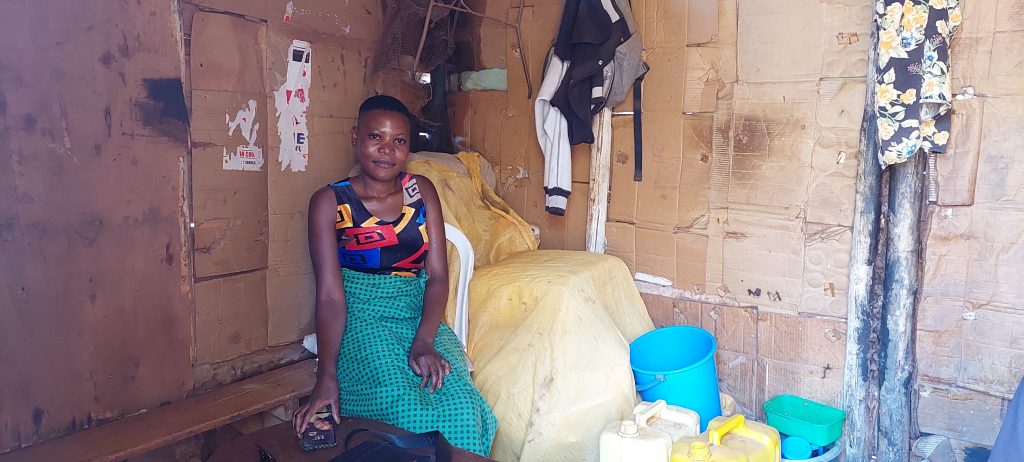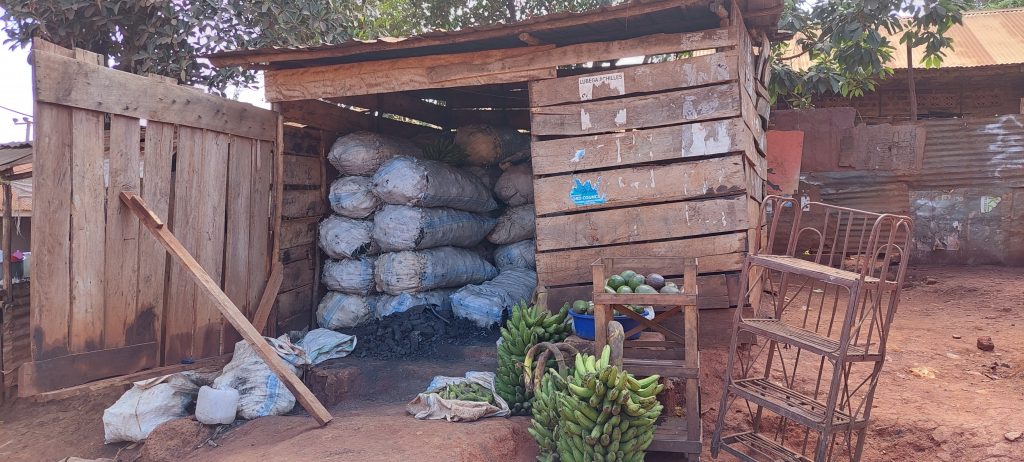Business
How Women in small businesses have held course during the COVID-19 Pandemic
41-year-old Zawedde Asiina was born in Kiwoko, Kikamuro Sub county Luweero district, presently known as Nakaseke district. She is a food vendor in Wandegeya, a Kampala surburb. Zawedde prepares her meals from under an umbrella (commonly known as Toninyila) literally translated as do not step on me. She then carries food on the plates around to her customers wherever they may be. She serves people in salons, garages, pharmacies, offices and hostels among other places.
Zawedde is a single mother of 4 children. She had her first child at 16 years of age. Then, a senior two student, her family forced her to drop out of school and get married. “I had hoped to return to school after having my child, but they got me married. However, after a few years of trying, the marriage did not work out and she decided to leave.
In 2009, Zawedde moved to Kampala and started working at a small restaurant in Wandegeya.
Every day Zawedde walked 12KMs to Kampala and another 12KMs back to Nansana where she lived with her aunt. Her first wage was 3,000 Ugandan Shillings (less than a dollar) per day. But, Zawedde persevered. Years later, she quit her job and decided to start her own small cooking business.
At her “Toninyila” in Wandegeya, Zawedde prepares all kinds of foods. She moved with some of the customers from her former work place. Her secret is customer care which she prides in. Zawedde has also taken over several leadership positions around her working area and brought her children to live with her.

Zawedde says she continued earning a living as many people around her work place had closed their food points and gone back to villages, while others chose to stay home. She however walked more than 20KMs per day to Wandegeya, cooked and served people in markets and pharmacies among other places that were still open for business. She also shared the proceeds from work, with her colleagues who couldn’t find food.
As a mother, Zawedde’s biggest challenge was her children staying home and not getting lessons like the other children. She says her earnings are not enough to afford her a computer for the children to learn, despite one of the children being a candidate.
“Someone like me can’t afford a smartphone of 1 million shillings or even data and all that is needed for online lessons. Even the papers released by government did not reach us. So, I asked my children to keep reading their books and past papers they had carried from school” she says.
Zawedde also recalls how the police patrol teams attacked mothers who were vending fruits during the lockdown. According to her, the police would confiscate the fruits and later take them to their families. She feared for her life, and those of her colleagues, but had to continue working. Zawedde is not the only woman that was lucky to continue working during the lockdown, Nakabugo Annet also runs a toninyila food place in Makindye Kampala.
28 year old Nakabugo however only makes breakfast (katogo of bananas, cassava & beans or g.nuts) every morning. However, she does not own the place where she operates. Her husband works at a 5-star hotel as a gardener, but does not earn enough to support the family. They have no children. When the March 2020 lockdown was announced, Nakabugo’s husband asked her to go live with her sister, because the couple did not have enough money to sustain them through the difficult times.

Nakabugo and her sister would receive food from her village, and this helped her to continue cooking the morning meals at the wooden structure where she operates. She walked every morning at 7am to come make breakfast for her customers, most of them bachelors who do not know how to cook, and prefer eating out. However, her biggest challenge was losing most of her customers, as many had run to the villages. Nakabugo says she only closed shop for one month, but realized she had run out of money and decided to head back to work. She was however not disturbed by the curfew enforcement team, since she was only working morning and would walk home before 6PM.
She says they lost a lot of money due to a drop in customers and the transportation used to carry food stuffs from the market to her work place had increased. “On several occasions, I cooked food and had to pour it because there were no customers. People did not have money to buy food, while others had gone to their villages. When I returned to work, I assumed my customers would all still be in their homes. But with salons and most boda boda stages closed, I had no way to make money, as these are the people who consume my food in the morning” Nakabugo recalls.
she says things have since changed and have been a bit stable.
Nakabugo’s neighbor, is Nimukunda Jeninah who sells bananas and charcoal. She has only been in business for one month now. Nimukunda was forced to leave her village in where she had been a farmer
“Things were so hard for me and family. My husband and I were farmers and used to send our produce to Kampala. However, when the pandemic hit, products lost market since only a few trucks were coming to villages to buy food. Business was very low and we lost a lot. So, we made a decision to move to Kampala and start a business when the lockdown was lifted” She says.
The couple left shamba boys in their banana plantation and made the move to begin their future in Kampala. Every week, the employees in their plantation cut bananas and send them to the couple to sell in Kampala. They also invested 5 Million in charcoal business and bought a few hundreds of charcoal sacks which they currently sell.

According to Nimukunda, the business is doing well, and she advises women, especially those in the corporate world to ensure that they start up such small side businesses, so as to earn some small money away from salaries. She says that even with lockdown, their kind of business would continue working, as people still want to eat.
This story was produced by Sarah Biryomumaisho and published by TheUgPost. It was written as part of Social Impact Reporting Initiative (SIRI) run by Women in News (WANIFRA). The content is the sole responsibility of the author and the publisher.












































